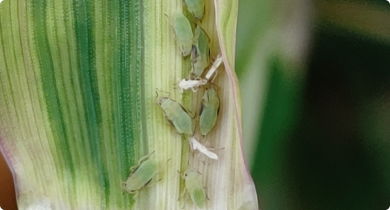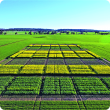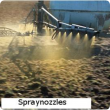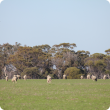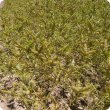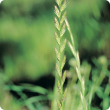Crops
The Department of Primary Industries and Regional Development continues to support the growth and international competitiveness of all crop industries in Western Australia.
With a 2400 kilometre span from its tropical north to its temperate south, WA supports a broad range of cropping industries from rain-fed winter cereals through to irrigated horticultural crops.
In the 2012/13 year the WA cropping industries exported a total of $3.9 billion which comprised: $3.1 billion of cereals, $859 million of pulses, pastures and oilseeds, $142 million of horticultural crops. The major contributors to these exports were wheat ($2.7 billion), canola ($756 million), barley ($377 million), lupins ($42 million), carrots at $48 million, oats ($12 million), and strawberries at $5.5 million.
Filter by search
Filter by topic
- (-) Remove Crop weeds filter Crop weeds
- (-) Remove Pests, weeds & diseases filter Pests, weeds & diseases
- (-) Remove Weeds filter Weeds
- Grains (43) Apply Grains filter
- Grains research & development (28) Apply Grains research & development filter
- Control methods (19) Apply Control methods filter
- Herbicides (12) Apply Herbicides filter
- Chemicals (12) Apply Chemicals filter
- Wheat (9) Apply Wheat filter
- Mechanical, physical and cultural (7) Apply Mechanical, physical and cultural filter
- Pastures (5) Apply Pastures filter
- Pasture management (5) Apply Pasture management filter
- Canola (5) Apply Canola filter
- Lupins (5) Apply Lupins filter
- Oats (4) Apply Oats filter
- Crop diseases (4) Apply Crop diseases filter
- Diseases (4) Apply Diseases filter
- Pests (3) Apply Pests filter
- Production & postharvest (2) Apply Production & postharvest filter
- Pulses (2) Apply Pulses filter
- Pest insects (2) Apply Pest insects filter
- Soils (2) Apply Soils filter
- Climate, land & water (2) Apply Climate, land & water filter
- Managing soils (2) Apply Managing soils filter
- Barley (2) Apply Barley filter
- Livestock & animals (2) Apply Livestock & animals filter
- Livestock management (2) Apply Livestock management filter
- Postharvest (1) Apply Postharvest filter
- Soil acidity (1) Apply Soil acidity filter
- Water repellence (1) Apply Water repellence filter
- Nematodes (1) Apply Nematodes filter
- Viruses & virus-like (1) Apply Viruses & virus-like filter
- Soil nutrients (1) Apply Soil nutrients filter
- Hay production (1) Apply Hay production filter
- Fungi (1) Apply Fungi filter
- Feeding & nutrition (1) Apply Feeding & nutrition filter
- Grains Research & Development (1) Apply Grains Research & Development filter
- Harvesting (1) Apply Harvesting filter
- Horticulture (1) Apply Horticulture filter
- Irrigated crops (1) Apply Irrigated crops filter



